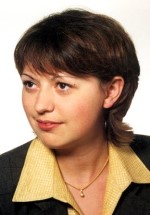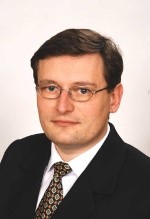SECOND EDITION
By Bożena Błaszczyk and Sebastian Kania
VERUM Advisory & Management
Faculty of Informatics and Communication
University of Economics in Katowice
Katowice, Poland
Abstract
In recent years, one could get more information on the projects being implemented, which may be related to obtaining other types of funding. Achieving success in project management requires extensive knowledge and its applications.
Projects can be made according to very different criteria (Oliński M., 2016): because of the size of the project (employees, duration, financial outlays); because of purpose for destiny (internal, external); place of implementation (in enterprises, public administration, schools, local government units, hospitals, etc.); type of project (innovative, investment, development, research, teaching, etc.); source of financing (from domestic, foreign, mixed funds); on the expected profitability (modernization, introduction of a new product, higher productivity, etc.); as well as by projects typical for the computer industry.
Due to the type of the project, archaeological projects can be distinguished, which on the one hand can be designed by scientists which on the one hand can be designed by scientists. The main stages of the project implementation are as follows: 1) planning, 2) data collection, 3) analysis, reports, transfer of sources and documentation, 4) long-term storage. (EAC Guidelines 1).
The article will present the specificity of archaeological project management, based on the example of the project entitled: “Pafos-Agora and infrastructure and economic activity of the Hellenistic capital and Roman Cyprus on the basis of interdisciplinary investigations” carried out at the Institute of Archaeology of the Jagiellonian University[1].
The research is carried out on the basis of literature analysis, field observations, research and project management and members of the archaeological expedition.
Key words: project management, international project, archaeological project.
JEL code: M10, M12
Introduction
Archaeology (from Greek: archaios – old, logos – speech, story) –is a word meaning speaking, inquiring about the past, about old things. There are many definitions of archaeology. Most of them describe it as a science exploring ancient human history based on the material remains of its activity. The most important of the tasks of archaeology is the desire to recreate in the most complete way, the manner and conditions of old people’s lives. The purpose of archaeology is also to preserve the world’s cultural heritage and protect it from destruction or robbery. As the subject of archaeology is a man, it is assumed that it “begins” with the appearance of the first objects considered to be made by our ancestors and “lasts” respectively to modern times, because the object thrown away by us in the trash is becoming part of the just created future cultural heritage. (Ławecka, 2011).
The document that created the legal basis for a specific cultural policy of the European Union was the Treaty on European Union, the so-called the Maastricht Treaty, which entered into force on November 1, 1993. In art. 128 of the Treaty, Member States have defined the purpose, competence and scope of Community action in the field of culture. In art. 128 paragraph 1 The Community has set as its goal, the contribution to the cultures flourishing of the cultures of the Member States, respecting their national and regional diversity while at the same time emphasizing the common cultural heritage. This meant the legitimacy of the role and importance of cultural diversity of the Member States of the Community in the integration project, while granting the Community the competence to take action to promote a common heritage. In art. 128 paragraph 2 The Community clearly defined the scope of its activities in the field of culture and subordinated them to the principles of complementarity and subsidiarity.
Community action was aimed at encouraging cooperation between Member States and, if necessary, supporting and supplementing their activities in listed areas. They consist of the following:
- increasing the level of knowledge and popularizing the culture and history of European nations,
- preservation and protection of cultural heritage of European significance,
- non-commercial cultural exchange,
- literary and artistic works, including audio-visual items.
(Jurkiewicz-Eckert D., 2015).
The purpose of this article is to present the specificity of archaeological project management. The article was inspired by the project entitled “Pafos-Agora and the infrastructure and economic activity of the Hellenistic capital and Roman Cyprus on the basis of interdisciplinary research” carried out at the Institute of Archaeology of the Jagiellonian University in Poland.
More…
To read entire paper, click here
Second Editions are previously published papers that have continued relevance in today’s project management world, or which were originally published in conference proceedings or in a language other than English. Original publication acknowledged; authors retain copyright. This paper was originally presented at the 8th Scientific Conference on Project Management in the Baltic States at the University of Latvia in April 2019. It is republished here with the permission of the author and conference organizers.
How to cite this paper: Błaszczyk, S.; Kania,S. (2019); Archaeological Project Management; presented at the 8th Scientific Conference on Project Management in the Baltic States, University of Latvia, April 2019; republished in the PM World Journal, Vol. VIII, Issue VI, July. Available online at https://pmworldlibrary.net/wp-content/uploads/2019/07/pmwj83-Jul2019-Bozena_Kania-Archeological-Project-Management.pdf
About the Authors

Bożena Błaszczyk
Katowice, Poland
![]()
Bożena Błaszczyk, PhD candidate with a specialization in project management at University of Economics in Katowice (completed doctoral studies). She has gained a BSc. and a professional master’s degree (M.Sc.) in accountancy at University of Economics in Katowice. She has also completed postgraduate studies in: 1) Management and Internal Control and Audit, 2) Psychology in Business, 3) Property Management. She is a member of the oldest and the largest Polish organisation of accounting and financial professionals, the Accountants Association in Poland (IFAC Member). She is a professional accountant and auditor. She has over 20 years of professional experience. She worked at a research institute (full-time) in the Accounting Department then as an Internal Auditor. Currently, in a private company VERUM Advisory & Management, she is performing services like: project accounting, audits of public projects, internal and external audits. She has great & diverse experience in audits of projects in particular in research and development projects and scientific projects. She is the author of several scientific publications. Bożena can be contacted at: be.blaszczyk@gmail.com

Sebastian Kania
Katowice, Poland
![]()
Sebastian Kania, PhD candidate with a specialization in project management at University of Economics in Katowice (completed doctoral studies). He has gained a professional technical master’s degree (M.Sc. Eng.) in Faculty of Automatic Control Electronics and Computer Science at Silesian University of Technology in Gliwice. He has also completed postgraduate studies in: 1) Practical English for Banking and Finance, 2) Research Project Management and Commercialization of Research Results, 3) Audit and Internal Control in Business and Public Administration, 4) Property Management. He is a member of the oldest and the largest Polish organisation of accounting and financial professionals, the Accountants Association in Poland (IFAC Member). He is an engineer, project manager and auditor. He has over 20 years of professional experience. He worked at a research institute: engineering work in the R&D Department and as a Manager of the Purchasing and Logistics Department. Currently, in consulting company VERUM Advisory & Management, he performs services like: project management, logistic support for projects, audits of public projects, internal and external audits. He has great and wide experience in delivering complex projects in particular in R&D and scientific projects. He is the author of several scientific publications. Sebastian can be contacted at: s.kania@interia.pl
[1] Project page: http://www.paphos-agora.archeo.uj.edu.pl/









